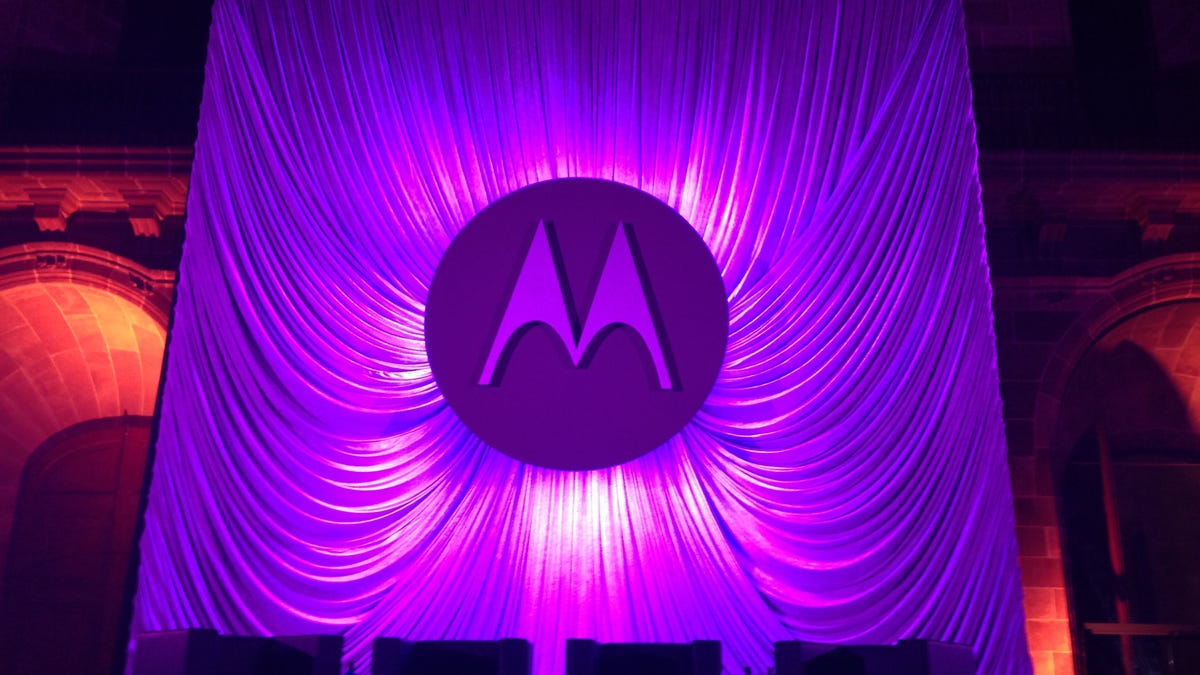Motorola wants in on the smartwatch game, too -- and soon
It won't be just for show: the watch will "solve real user problems," says a top exec. Plus: Moto Maker heads to Europe and Mexico in the second quarter.

BARCELONA, Spain -- Motorola Mobility may be a lame duck waiting for Lenovo to take the reins, but that doesn't mean it can't make a little noise.
Motorola, for now still a unit of Google, said Tuesday that it will build a smartwatch for later this year. The product will "solve real user problems," will be treated more like an item of jewelry, and will be announced in a few months, according to Rick Osterloh, vice president of product at Motorola.
"Right now, there are no wearable products you actually want to wear, and it's because they're all extremely ugly," Osterloh said at an event at Mobile World Congress on Tuesday.
Motorola is just the latest company to dip its toe into the smartwatch waters. As previously reported by CNET, Google and LG are working on a smartwatch that will debut at Google I/O. HTC told CNET that its smartwatch would be ready for the holidays.
Osterloh said that the company will expand its Moto Maker feature, which lets consumers customize their own version of its flagship Moto X smartphone, to Europe and Mexico, starting in the second quarter. In Europe, the UK will get the Moto Maker first..
Last month, Lenovo agreed to acquire Motorola from Google in a deal valued at nearly $3 billion. The acquisition will allow Lenovo to accelerate its plans to expand into more mature markets such as the US. Google, meanwhile, is able to offload a burden on its balance sheet and eliminate the appearance that it was playing favorites.
Osterloh was joined by Mark Randall, head of operations and supply chain, and Steve Horowitz, head of software engineering, who fielded a number of questions from reporters. Osterloh said that the company would expand the distribution for Moto X and Moto G, and noted that the Moto X would be headed to Australia soon.
One problem with expanding the Moto Maker capability is the need to have local production facilities to shorten the delivery times for customized devices. Randall said he is looking at different ways of using production facilities in China, but find ways to cut down on the delivery time. One such tactic is called merge in transit, in which goods from multiple sources are consolidated and sent to a distribution center for shipment.
CNET's full coverage of Mobile World Congress
On whether Motorola might turn to Windows Phone, Horowitz said the company was 100 percent focused on Android. But he did leave the door open, noting that he would have conversations about the future alignment of products with Lenovo. Lenovo was recently announced as a partner and supporter of Windows Phone at Microsoft's Mobile World Congress conference.
While the Advanced Technology and Projects division, responsible for modular phone system Project Ara, would be going to Google, Motorola said it would continue to work with ATAP.
Randall, meanwhile, was dismissive of the $25 Firefox smartphone, saying he was wary of introducing a product with too many "buts," noting he doesn't want to compromise on the product or experience.
Osterloh also expressed the commitment to drive prices on smartphones further down.
"The days of the $600 phone are coming to an end, and we're happy about that," he said.

